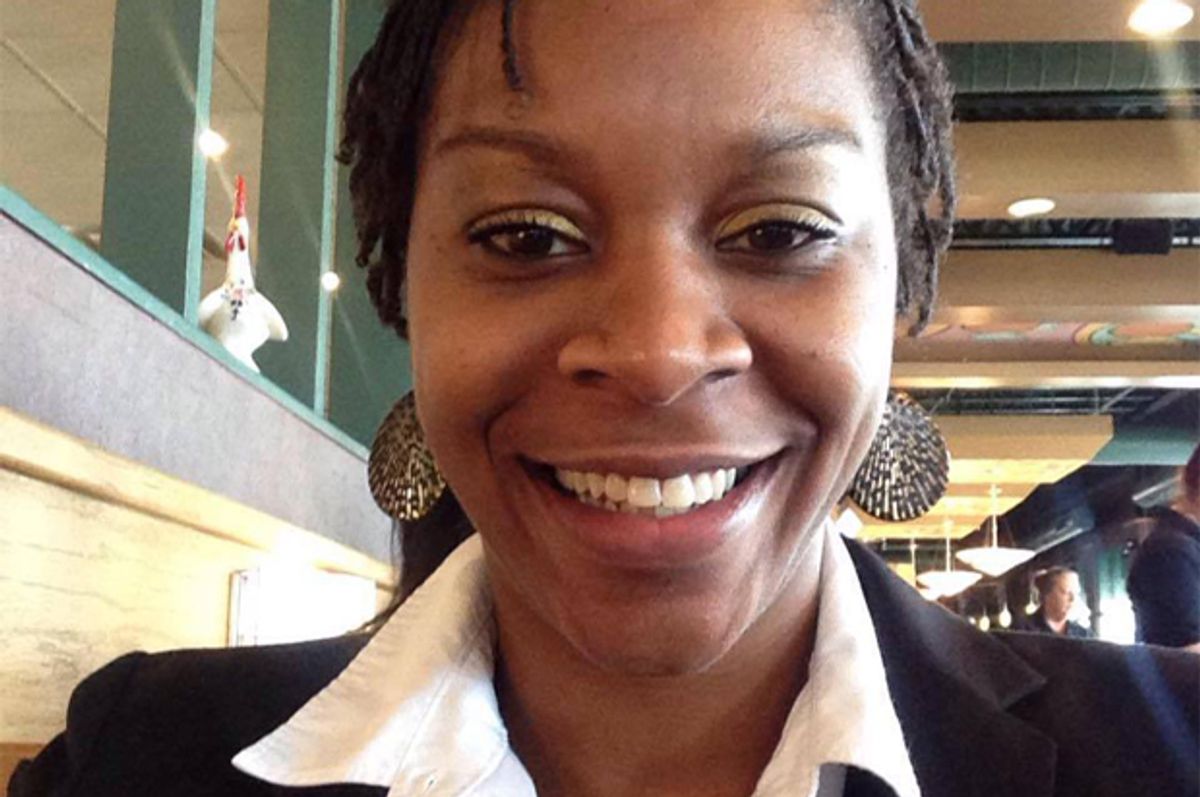Officials found 44-year-old Raynetta Turner dead in a Mt. Vernon jail cell in New York State Monday morning, making her the fifth black woman to die in jail—that we know of—this month.
ABC news affiliate Channel 7 reports that Turner was arrested on a shoplifting charge Saturday and taken to a local hospital after notifying officials of various health issues. She was returned to her cell Sunday and fingerprinted at 2am Monday. She was found unresponsive in her cell at 2pm that day. Turner’s death is under investigation.
"All I know is my wife is dead and no one is saying anything," said Herman Turner, Raynetta’s husband.
Four other black women have been found dead in jail cells across America this month. Sandra Bland, 28, was found unresponsive in a Texas jail on July 13 after being brutally arrested for a traffic violation days earlier. Kindra Chapman, 18, committed suicide in an Alabama jail a day later, following her arrest for allegedly stealing a cell phone. Joyce Curnell, 50, was found dead July 23 at the Charleston County Correctional Facility. On Sunday, Ralkina Jones, 37, was found unresponsive in a Cleveland Heights, Ohio jail Sunday after a Friday arrest for a domestic dispute with her husband. Jones’ death occurred the same day the Movement 4 Black Lives ended in Cleveland with a police officer videotaped as he randomly pepper-sprayed peaceful protesters.
Though the Black Lives Matter movement is led by black women, stories of their experiences with law enforcement have been largely overshadowed by the narratives of black men. But the national outcry over Sandra Bland’s death has been unusual. Her name trended on Facebook and Twitter for days. #JusticeForSandraBland trended on Twitter for just as long. Perhaps her own outspokenness on racial justice issues through her video series #SandraSpeaks made the story behind her death more compelling for mainstream news outlets.
Whatever the case, black women are finally getting the media attention activists have long called for. It will be interesting to see how this new attention will play out in the presidential campaign when candidates begin seeking black votes. Farah Tanis, executive director of Black Women’s Blueprint, wrote in an email that black women have long been a transformative political force in the black community.
“Within the past eight years, the political imperative and influence of black communities has grown exponentially, and black women’s political culture and political agency has been a revolutionary force,” she said. “Black women voted in record numbers in the last two elections, carrying the first black president of the United States to victory in 2008 and 2012. Black women’s groups and organizations, leaders and foot soldiers have sprung up everywhere.”
Pew Research Center reports that black women had the highest voter turnout rate in 2008. In 2012, the black voter turnout rate surpassed white voters for the first time in history. Again, this milestone was achieved through the participation of black women.
Without question, black women carry with them enormous political leverage that has the potential to draw policymakers’ attention to the abuses they experience in the criminal justice system. How presidential contenders will deal with this in conversations about police brutality in the black community remains to be seen. What is clear is that the issue of state violence against black women is one that is becoming impossible to avoid.


Shares